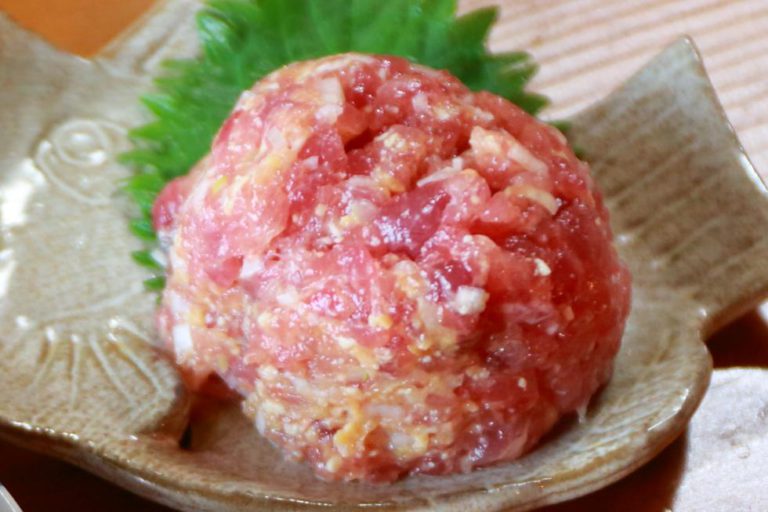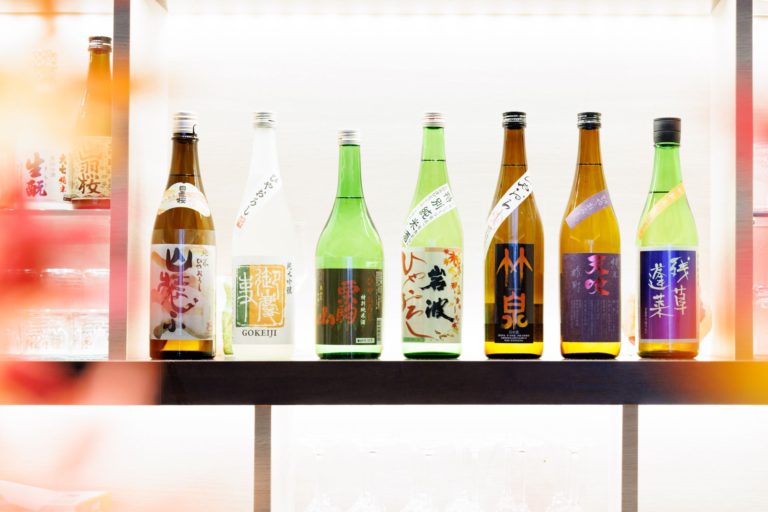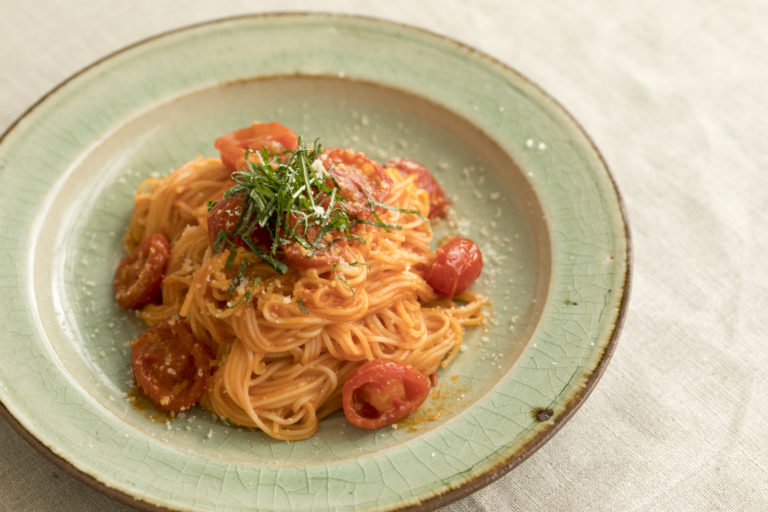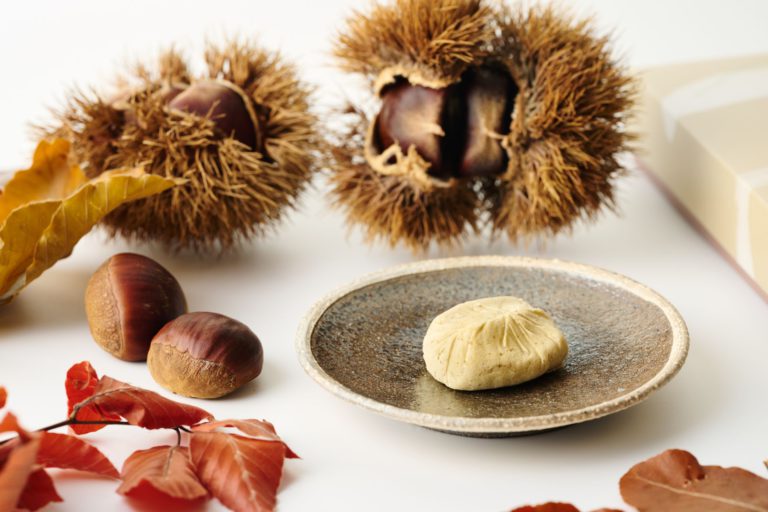SHUN CURATORS (August 2014)
Don’t Just Taste The Food, Feel The Climate!
- Chef Kurumi Arimoto
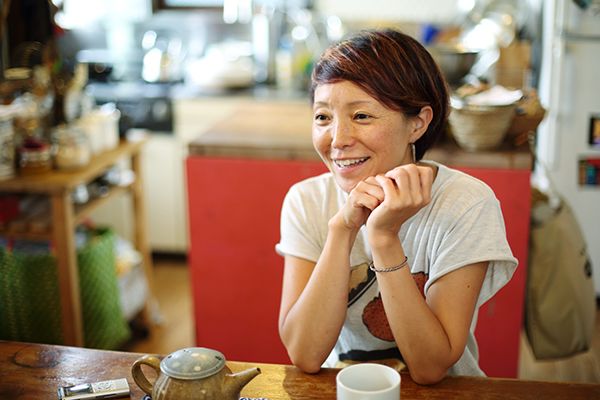
Food And Memory Are Connected
You worked as a chef for quite a long time. What is your relationship with food nowadays?
I was running a cafe-style shop in Hayama down in Kanagawa for a while, but staying in one place and cooking just doesn’t suit me. I need to get out and do more with food. After a while I couldn’t ignore my feelings on the subject, and I decided to close the shop. I went to the rural areas of Japan and I’ve been opening cooking schools, catering for festivals and parties, setting up branch shops, and so on. I don’t just cook either, I go abroad and write about the culinary arts of different countries. I take what I learn in those new places and make themed cooking classes. I’m also holding cooking classes overseas. Last year I held one in Morocco for local housewives, and taught them how to make Japanese food. I taught them basics, like how to make dashi, miso soup, and shio kouji. Dashi and kouji are really delicate seasonings, but I was thrilled to see they had such a great deal of interest in them. In exchange, I had them teach me Moroccan cooking.
What made you decide to start this venture in the theme of traveling and cooking?
I first officially decided when I took on a job writing for a travel magazine. Naturally I was going to be going around the world and writing my experiences, but since I was a kid I always thought of land and food and food and memory as being connected. That connection is really fascinating to me. When I first went overseas, the food is what I remembered most. When I was in elementary school, I went to summer camp in California. Even now I remember everything I ate there; stacks of sandwiches made with cheese, ham, mayonnaise, and rye bread at picnics, PB&J Sandwiches leaking their insides, deep red fruit juice. It wasn’t delicious at all, but those are the things that remained of my experiences in America. That link between memory and food is really interesting to me, so I really value the relationship between travel and food. I’ve been traveling to India, Morocco, Sicily, Barcelona and Basque in Spain, and more. I want to convey the culinary cultures I discovered in those places to others. By that, I don’t just mean helping people taste the foods, but smell the smells, feel the arid atmospheres, etc. I want to use food as a tool to express those climates and all of the other things the eyes cannot see. That is my mission, and through that I want to get people excited enough to go to those countries and feel it for themselves.
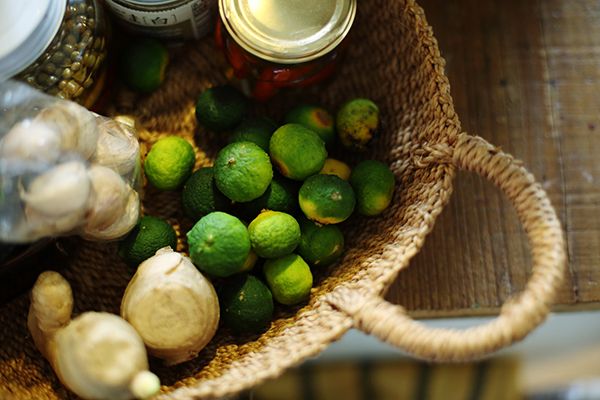
We Must Value A Culinary Experience That Suits Climate
In traveling abroad, was there anything new you came to recognize about the beauty of Japanese culinary culture?
Of course. The more I go abroad, the more impressed I am by the culinary arts in Japan. There are a lot of strange things about it, but there are also a lot of amazing things too. Everything is delicious, and shun is a wonderful concept. There is a consciousness of eating foods that are in season. There are 24 solar seasons and 72 climates. Living with a sensibility of the importance of the changing seasons and, based on that, enjoying seasonal ingredients and dishes is something we must pass down to future generations. Also, the Japanese are sensitive to texture. Boiling, frying, steaming, and soaking. There are a lot of different textures contained in one dish. This culinary culture can’t be found anywhere else. That culture requires time and effort, but is worth maintaining. There are more ways of expressing seasons through colors as well, which is something I hope to learn more about. Japan is rich with ingredients, many of the regions even boast a specialty. Particularly vegetables, seasonings, miso, sake, the subtle differences in ingredients and their use in the very same dish between the north and south might make it sweet or spicy. It is a very deep culture.
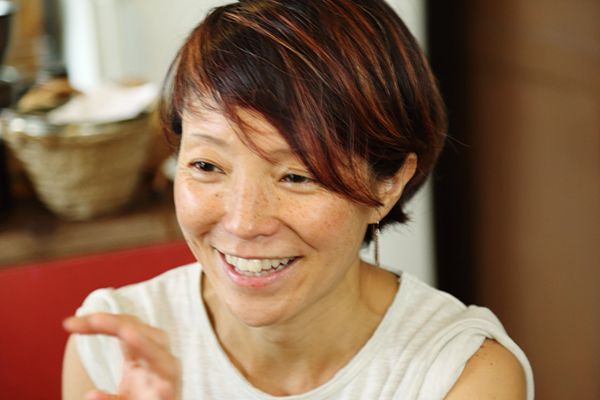
I'm sure you've probably been around to the different regions in Japan, as well. Do you have any favorite places?
My favorite place is Kagoshima. Last year, including work, I must have gone three or four times. Everything I need is right there, and it’s just a really comfortable place to be. The best part is that the population is just right, not too large and not too small. It’s rich in natural beauty with the mountains and the sea, and there are plenty of ingredients to be found at the many farmer’s market. It’s in the south, so there’s a lot to find. The mamemoyashi, bean sprouts, are especially impressive. There’s an old woman who only sells bean sprouts at the market down there. They’re organized neatly in a wooden box and they’re absolutely delicious. You just boil them a bit, and season them with sesame oil, doubanjiang and light salt and pepper. It’s a simple dish, like the Korean namul dish, that is unforgettable. Also there are a lot of vegetables that you can’t find in Tokyo. Have you heard of toimogara? It’s like a potato cane. I see it and have no idea how to eat it, and that really excites me. Kagoshima has an intense scent and is very impressive.
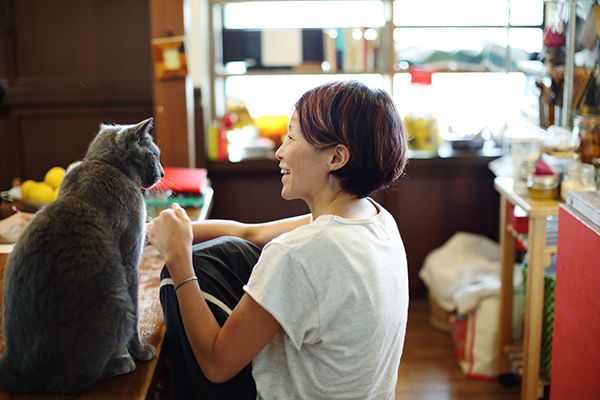
How would you want those abroad who are interested in Japan to enjoy themselves here?
First of all, they should go to the places where things are being made. Drinking the famous Okinawa liquor, Awamori, in Tokyo, and actually going to Okinawa to taste it is completely different. It tastes that much better down in Okinawa. The same goes for the Japanese. Many have tasted it, but few have actually gone to where it was made and tried it. There’s something about the climate, like a smell, that you just have to experience for yourself. When I went abroad, I really loved the taste of a home cooked meal. Try some of the special dishes at an izakaya, or maybe the food they’re making out in the back of the fish market. For getting that local flavor in Tokyo, they should definitely go drinking in Kokashita. That’s where you can have a great local culinary experience.
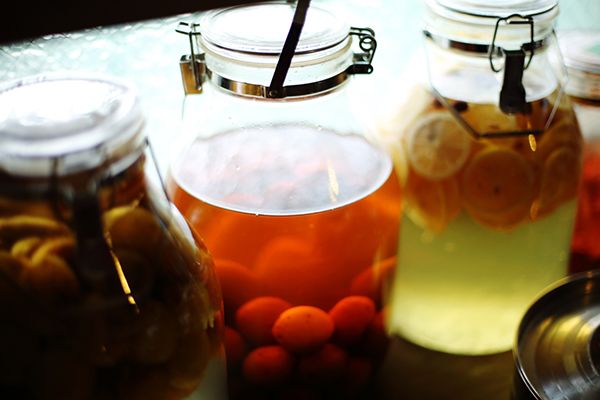
What are your plans for the future?
I think I would like to start doing something different, something other than cooking school. I was thinking of renting a farmhouse, with 20 or so people, and enjoying the food or sake made in that area, an event where you taste the scenery and local flavor. Of course, I would love to have some visitors from abroad participate too!
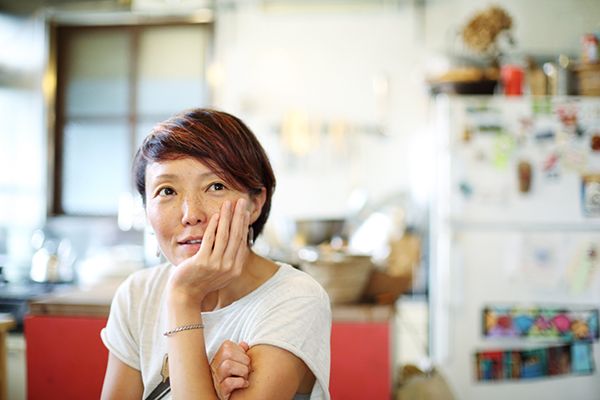
Writer : TAICHI UEDA
/
Photographer : CHIZU TAKAKURA

